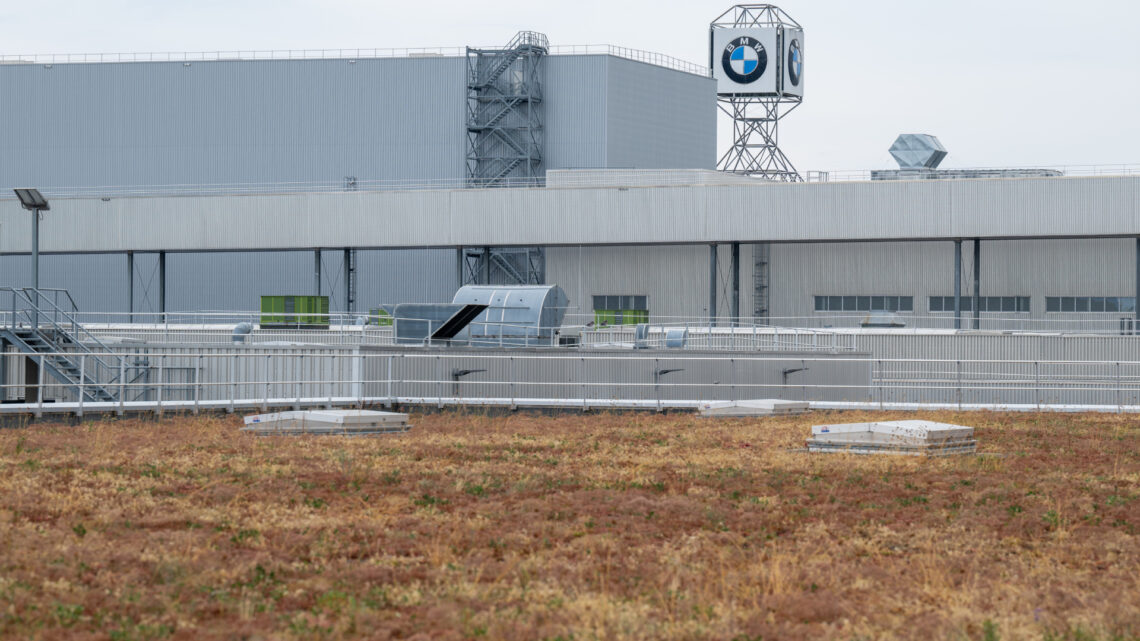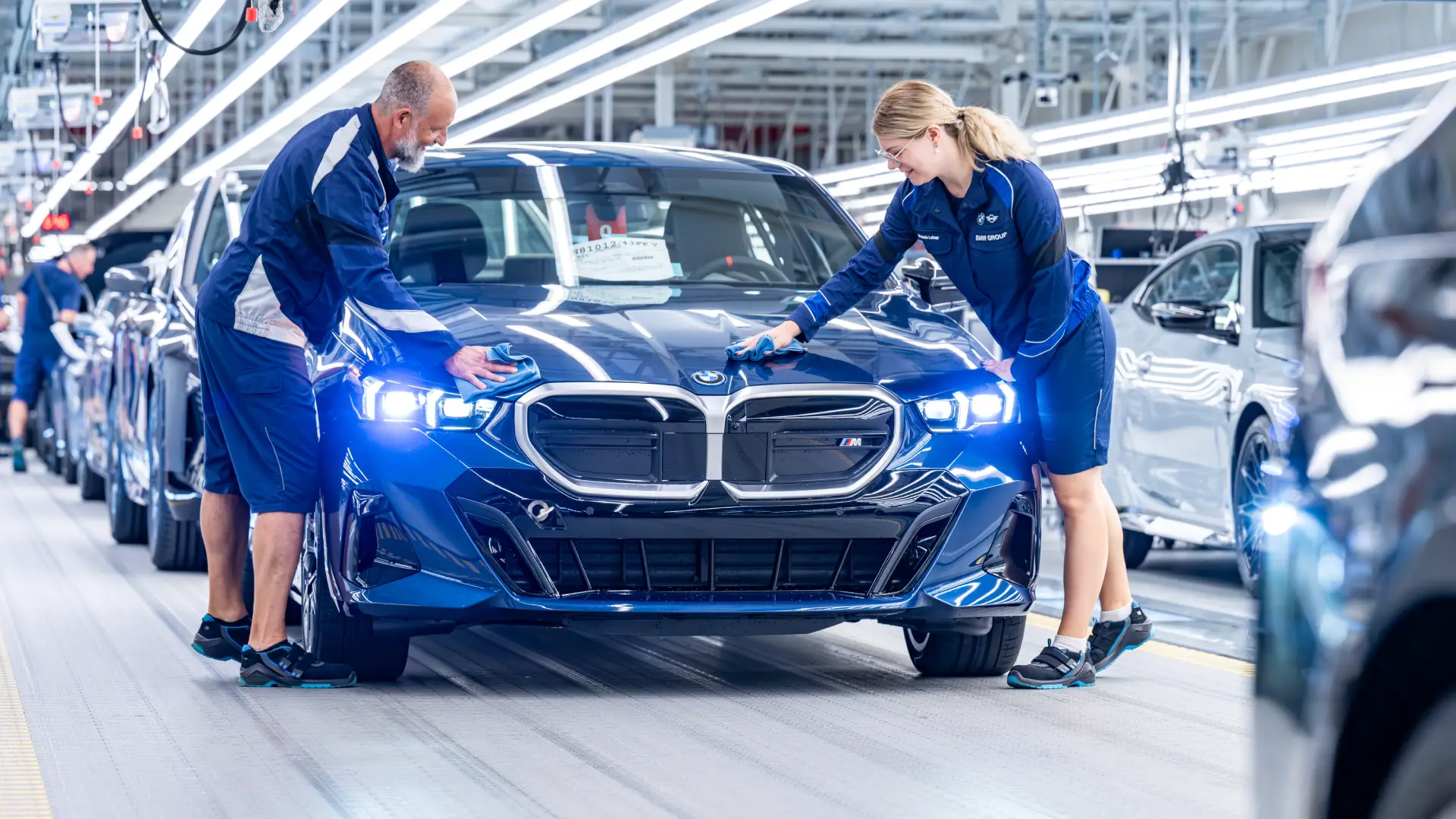5 facts about BMW 5 Series production
The BMW 5 Series is ready for another model generation. By and large, it is another evolution of the outgoing model, but there are some important new things. Thus, for the first time, the new model also comes as an all-electric BMW i5. We tell you more about the new BMW 5 Series in this article. Now we are mainly focusing on its production, which began in late July at the BMW plant in Dingolfing, near Munich.
Broadly speaking, the production process of the BMW 5 Series is similar to that of other cars. Different components come together, form parts, the powertrain emerges and is merged with the rest of the chassis. On a separate line, the bodywork is produced and eventually everything comes together to form a complete BMW 5 Series – or BMW i5. The video below shows the production process in detail. Nevertheless, the production process does have some special, striking or unusual elements. We list the five most interesting facts.
This is how BMW builds the new 5 Series (2024) – BMW Group Factory Dingolfing – AutoRAI TV
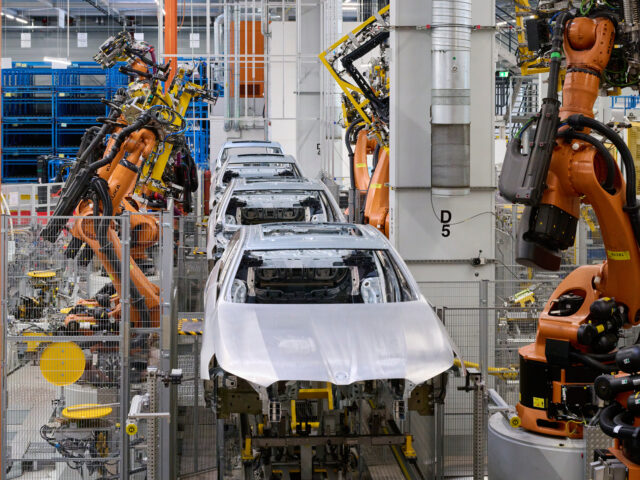
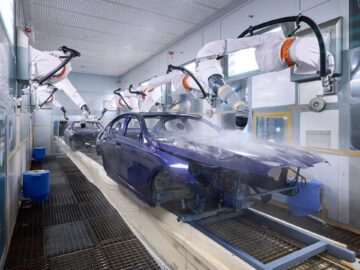
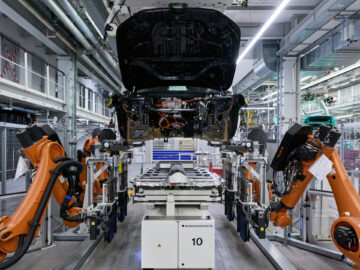
1. Statistics and the importance of the 5 Series
The BMW 5 Series is one of the brand’s most popular models. So it goes without saying that the 5 Series is also important for production. Indeed, by BMW’s own admission, the 5 Series even forms the core of production at Dingolfing, the brand’s largest plant. More than 280,000 units of the BMW 5 Series were produced in 2022 alone. Especially once the new BMW M5 and BMW 5 Series Touring are introduced soon, BMW expects that number to pass 300,000 units per year.
More statistics: since the opening of the BMW plant in Dingolfing, exactly 50 years ago this year, some 12 million BMWs have been produced. Of these, the BMW 5 Series alone accounts for 8 million units. By the way, the very first BMW produced at the factory was also a 5 Series, a 520i in the color Tangerine, or orange. Totally 1970s. The plant currently produces the BMW 4 to 8 Series (not the X models) and the BMW iX. The proportion of electric models rolling off the assembly line is increasing. It is expected to reach 40% of production as early as next year.
Eventually, the BMW models produced go all over the world. Nine out of ten BMW models produced today are sold to customers outside Germany. By the way, that’s about all BMW models, not just the ones produced here in Dingolfing.
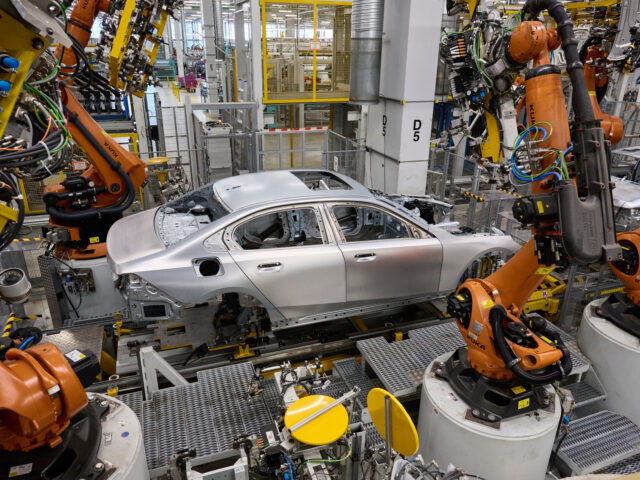
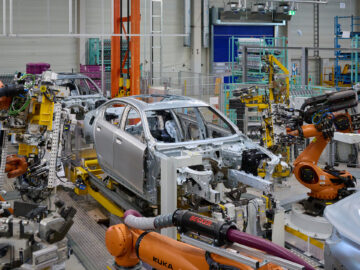
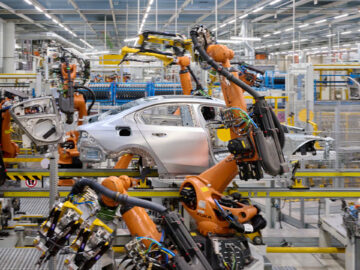
2. Digital copy of factory
BMW uses the self-developed, so-called iFactory principle for its factories. In short, this means that the management of the plants is based on the three principles of Digital, Lean and Green. Either digitization, efficient and streamlined production and sustainability. The former uses advanced technologies, including the application of AI (artificial intelligence). For example, quality control is largely automated. For example, smart cameras with AI technology can tell if a part is missing, not sitting straight, or if something else deviates from the norm. In total, there are as many as 60 applications of AI in the plant.
More interestingly, BMW makes complete digital copies of its factories. The current factory hall is scanned very accurately and that data is converted with a CAD program is an accurate 3D copy of the factory. Thanks to sensors and cameras, that 3D copy can even show the situation in the real factory in real time. The 3D copy can be viewed from all angles, but you can also walk through it yourself with VR glasses. Such a digital copy is made of every BMW factory.
This so-called “digital twin” of the plant has several applications. For example, a production manager can remotely monitor a production line, or see how processes are running at another BMW plant. The 3D copy is also used to accurately fit a future production line into the plant hall. Speaking of which, do you see which car is shown here on an example of a future production line? Could the BMW i Vision Dee go into production virtually unchanged after all?
Text continues after photo gallery
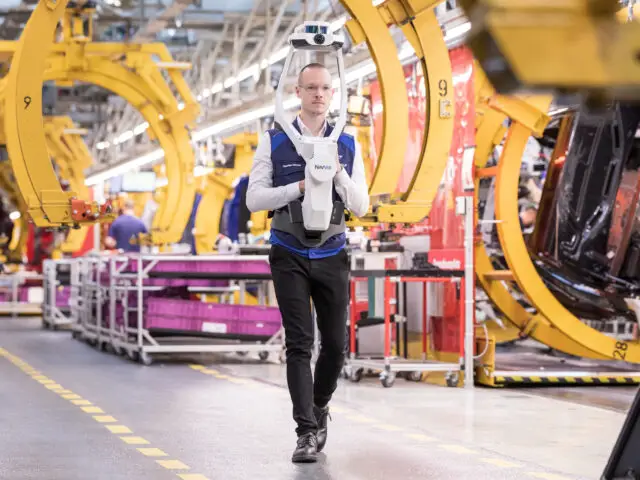
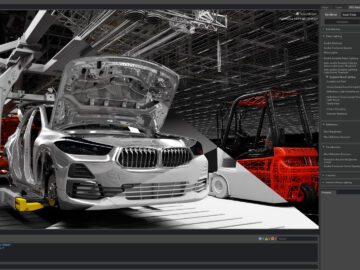
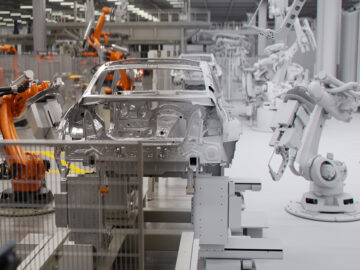
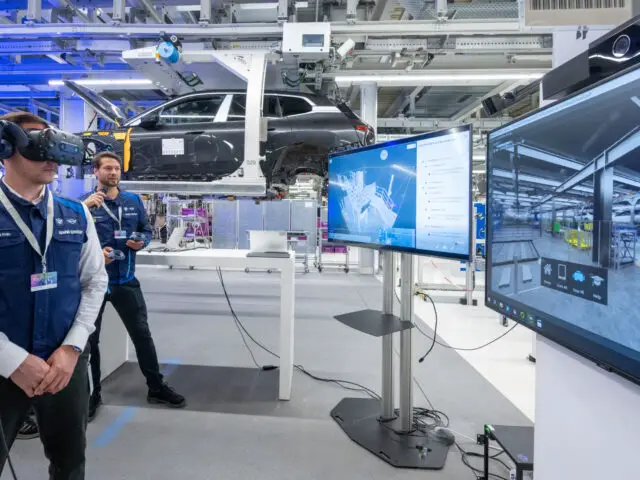
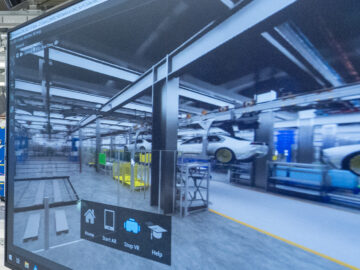
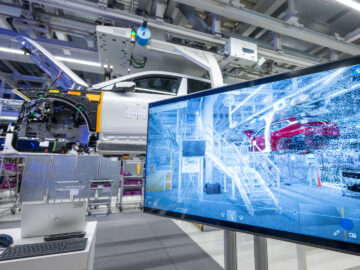
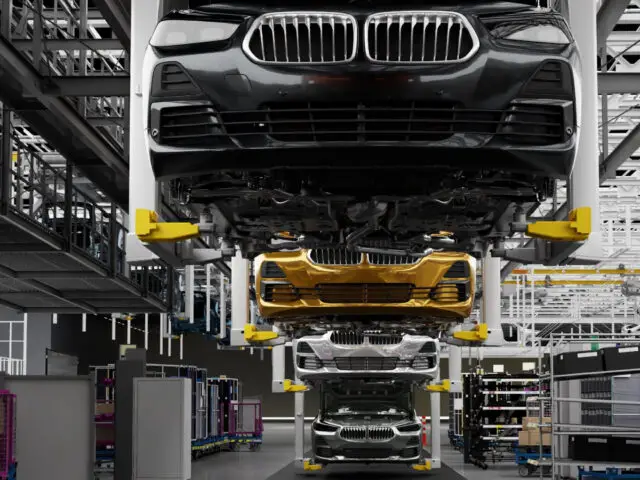
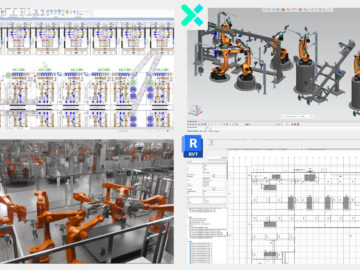
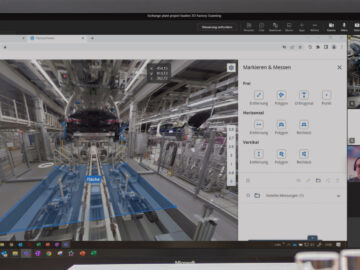
3. BMW 5 Series drives autonomously through factory
BMW also has technologies in-house for autonomous driving. On public roads you can’t do much with them for now, but on private property they are already being used. Indeed, many new BMWs have already done a bit of fully autonomous driving before the customer takes delivery.
Last year, BMW began a pilot for Automated Driving In-Plant at its Dingolfing plant. In the process, the BMW 7 Series drives completely autonomously from the assembly hall to the final inspection area. The pilot was successful and is now being rolled out on a larger scale for the new BMW 5 Series as well.
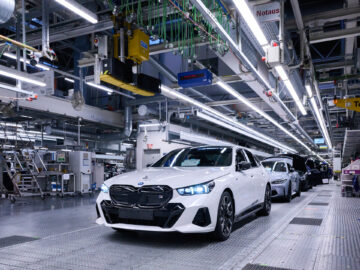
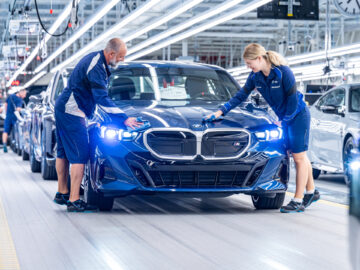
4. Highly flexible manufacturing processes
In practice, the Lean aspect of the BMW iFactory principle means above all very high flexibility. Small inventories allow one to respond quickly to rapidly changing demand, for example, but the production line itself can also be adjusted with little effort. Instead of having a production line per model, different models and versions simply run off the same production line.
Of course there is some sorting in it, but the BMW 7 Series, BMW i7 and BMW iX, for example, are seemingly randomly mixed up on the production line, as are the new BMW 5 Series and the “old” 6 Series Gran Turismo. However, the automated assembly machines know exactly which components need to go to which car. A separate supply line ensures that the right components are ready at the right times.
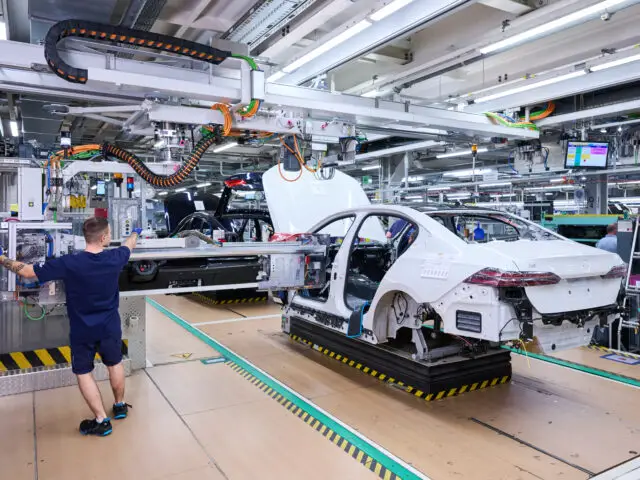
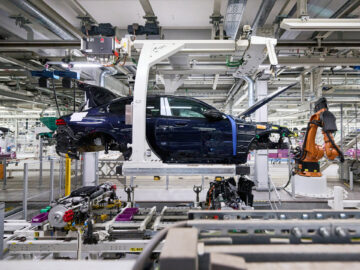
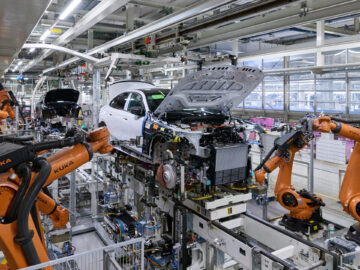
5. BMW also produces honey
Finally, the Green theme of the BMW iFactory principle. Sustainability manifests itself in many forms. The most obvious are a variety of energy conservation and emission reduction measures. But did you know that the BMW plant is also actively working for biodiversity in the region? For example, all roofs – where possible – are covered with greenery. This absorbs rainwater while providing better insulation for the factory hall. Win-win! As of 2020, more than 30,000m2 of roof has already been covered with greenery. There are also more than 100 fruit trees at the plant. In all this, BMW takes advice from external biologists, so that all the greenery really adds value.
BMW goes a step further and even has its own bee hives, which live off the greenery on the roofs and around the factory. In fact, 40 bee colonies now live on and around the factory site. So when you visit the factory, you can take home a jar of real BMW honey.
